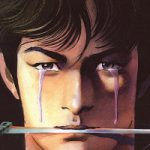Sun-Jeong manhwa
Regions: Korea

Sun-jeong manhwa (or pure hearted comics) refer to a genre of Korean comics that initially portrayed “pure hearted” young women who overcome various struggle in their inception, but are now inclusive all comic topics that are marketed and targeted at a (majority) female audience in Korea. Sun-jeong manhwa are (usually) written by women about women for women.
Although men initially drew the comics, women began to dominate the market in the post-Korean War era. Diverging from the traditional view of women as innocent, naïve, and submissive presented by male authored sun-jeong manhwa, authors such as Shin Il Sook (1961-) created their own stories by copying Japanese “manga” (comic) styles and reinterpreting western plots. The oppressive environment due to the censorship of the press due to authoritarian regimes regime in the 1970s stifled publications of sun-jeong manhwa, until importation of Japanese manga revitalized the genre. The 1980s saw resurgence for the publication of sun-jeong manhwa by authors such as Kim HyeRin (1962-), and Hwang Mi Na (1961-) who created works that were distinctively tailored to the female audience. While male-targeted comics focused more on overall story development, sun-jeong manhwa of this era focused on emotional development of the characters. Sun-jeong manhwa of this era also reflected the socio-political turmoil experienced by their readers, and reflected the desire for democracy and political reform by Korean society through fictional portrayals of other turbulent times in history. During the 1980s to the 1990s, women became a driving force in comic sales. They demanded more in quantity and quality, leading to the establishment of Renaissance, a sun-jeong dedicated magazine in 1989, with others soon following.
In the 21st century, the sun-jeong genre has been transformed to dispel various gender stereotypes. Contemporary sun-jeong manhwa, although still strongly rooted in romance, feature strong, goal driven female characters. Male figures has undergone transformations as well, and are portrayed as more sensitive and compassionate. The style of sun-jeong manhwa has decidedly more feminine characteristics as well, although some have criticized the style for idealizing western characteristics and body types.Although the sun-jeong manhwa has struggled in competition in the global marketplace due to the lifted ban on Japanese goods in 1998, the genre has carved out a place of its own as topics have diversified and participation by women sun-jeong manhwa related activities has grown. Sun-jeong manhwa has occupied a niche in both the sales and rental markets for comics and provides an independently female space for communication. The advancements and popularity of sun-jeong manhwa reflect a growing female voice in Korean society.
— Shelly Qiu
Further Reading
- Kim, Da-Eun. “Feminine Sketches of Korean Society.” The Yonsei Annals, November 25, 2007. Accessed May 22, 2015. http://annals.yonsei.ac.kr/news/articleView.html?idxno=545.
- Lent, John A. “Comics in the 2000s”in Asian Comics. Univ. Press of Mississippi, 2015.
- Noh, Sueen. “The Gendered Comics Market in Korea: An Overview of Korean Girls’ Comics, Soonjung Manhwa” IJOCA Issue 6-1, Spring, 2004. Accessed May 21, 2015. http://astro.temple.edu/~moongsil/study/The_gendered_comics_market_in_korea.pdf


